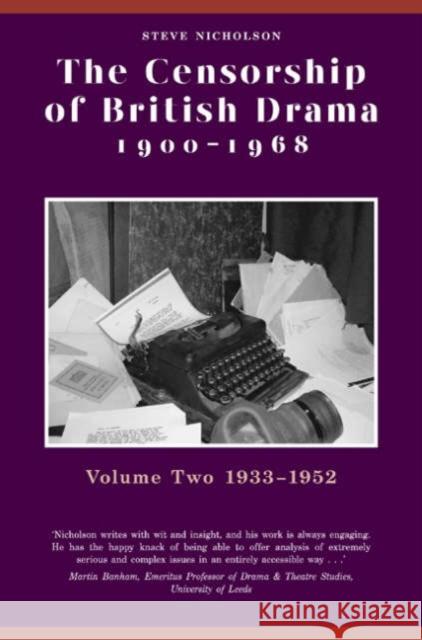The Censorship of British Drama 1900-1968: Volume 2: 1933-1952 » książka
The Censorship of British Drama 1900-1968: Volume 2: 1933-1952
ISBN-13: 9780859896979 / Angielski / Twarda / 2005 / 440 str.
The Censorship of British Drama 1900-1968: Volume 2: 1933-1952
ISBN-13: 9780859896979 / Angielski / Twarda / 2005 / 440 str.
(netto: 370,50 VAT: 5%)
Najniższa cena z 30 dni: 383,79 zł
ok. 22 dni roboczych.
Darmowa dostawa!
This is the first part of a two volume analysis of British theatre censorship from 1900 until 1968, based on previously undocumented material in the Lord Chamberlain's Correspondence archives. It covers the period before 1932, when theatre was widely seen as a crucial medium with the power to shape the future of society, determining what people believed and how they behaved. Where previous interpretations, based on more limited evidence and topics, have often constructed the Lord Chamberlain's Office either as an annoying but amusing irrelevance, or as dictatorial in its unchanging certainties, this study throws completely new light on the day-to-day functioning of the system and the principles, policies and detailed practice of theatre censorship. It uncovers the differing views and the disputes which occurred among and between the Lord Chamberlain and his Readers and Advisers, and discusses the extensive pressures exerted on him by bodies such as the Public Morality Council, the Church, the monarch, government departments, foreign embassies, newspapers, powerful individuals and those claiming to represent national or international opinion. Based on the first comprehensive research on the Lord Chamberlain's Correspondence archives for the 20th century, this book explores the portrayal of a broad range of topics in relation to censorship, including the First World War, race and inter-racial relationships, contemporary and historical international conflicts, horror, sexual freedom and morality, class, the monarchy, and religion.











